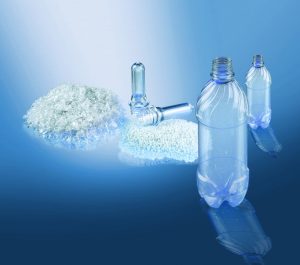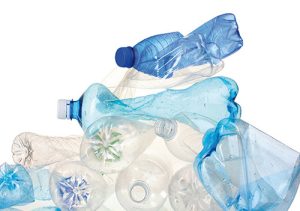Recycled Granules for Drink Bottles
Recycled Granules for Drink Bottles are a sustainable alternative to virgin plastic, made by processing post-consumer or post-industrial plastic waste into reusable pellets. These granules are commonly derived from polyethylene terephthalate (PET), the primary material used for beverage containers.
Characteristics of Recycled PET (rPET) Granules
- Material Source:
- Post-consumer bottles (collected, cleaned, and processed).
- Post-industrial PET scrap (off-cuts or rejected materials from production).
- Processing Steps:
- Collection and Sorting: Bottles are collected, sorted by type and color.
- Cleaning and Shredding: Labels and caps are removed; the plastic is washed and shredded into flakes.
- Pelletization: Flakes are melted, filtered to remove impurities, and formed into granules.
- Purity and Quality:
- rPET granules used for drink bottles must be food-grade, ensuring they meet strict safety standards (e.g., FDA, EFSA).
- Advanced recycling processes like chemical recycling break down PET into its monomers, producing granules nearly indistinguishable from virgin material.
- Key Properties:
- Transparency: High-quality rPET maintains clarity.
- Strength: Similar durability to virgin PET.
- Barrier Properties: Suitable for beverages due to resistance to oxygen and moisture.
Advantages of Using rPET for Drink Bottles
- Environmental Benefits:
- Reduces reliance on fossil fuels by reusing plastic waste.
- Lowers carbon footprint and energy consumption compared to virgin PET production.
- Regulatory Compliance:
- Aligns with government mandates and industry initiatives to increase recycled content in packaging.
- Consumer Appeal:
- Demonstrates environmental responsibility, appealing to eco-conscious consumers.
- Cost-Effectiveness:
- While initial setup for recycling may be costly, using recycled materials can offset long-term expenses due to fluctuating virgin material prices.
Challenges with rPET Granules
- Coloration:
- hdpe granule for blow molding may have slight discoloration, especially from mixed or low-quality sources.
- This is mitigated by advanced purification processes or blending with virgin PET.
- Contaminants:
- Non-food-grade recycled PET cannot be used for direct contact with beverages unless processed through chemical recycling or strict decontamination protocols.
- Mechanical Properties:
- Prolonged recycling (multiple loops) can degrade polymer chains, impacting performance. This is often addressed by blending with virgin PET or using chain extenders.
Applications of rPET in Drink Bottles
- Fully Recycled Bottles:
- Some manufacturers produce bottles with 100% rPET granules, typically for water, soft drinks, and juices.
- Blended Bottles:
- To maintain quality and performance, rPET is often mixed with virgin PET (e.g., 30% rPET and 70% virgin PET).
- Non-Food Applications:
- Lower-grade rPET can be used for non-food bottles like cleaning products or for outer packaging layers.
Standards and Certifications
- FDA/EFSA Compliance:
- Food-grade rPET granules must meet safety standards for direct food contact.
- Global Recycling Standards:
- Certifications like Global Recycled Standard (GRS) ensure material traceability and ethical sourcing.
- Recyclability Targets:
- Many regions mandate specific recycled content levels in beverage bottles, e.g., the European Union requires 25% rPET in PET beverage bottles by 2025 and 30% by 2030.
Recent Innovations
- Chemical Recycling:
- Advanced methods like depolymerization can break down PET into monomers for creating high-purity rPET granules.
- Enhanced Sorting Technologies:
- AI and infrared sorting systems improve the efficiency of collecting high-quality PET for recycling.
- Closed-Loop Systems:
- Companies like Coca-Cola and PepsiCo adopt closed-loop recycling, where bottles are consistently recycled into new bottles.

Best Practices for Using rPET in Bottles
- Source High-Quality rPET:
- Work with suppliers using advanced decontamination and pelletization technologies.
- Ensure Food-Grade Certification:
- Only use certified materials for direct beverage contact.
- Optimize Blends:
- Blend rPET with virgin PET to maintain strength and clarity if needed.
- Design for Recycling (DfR):
- Create bottles with minimal additives and compatible caps to simplify future recycling.

